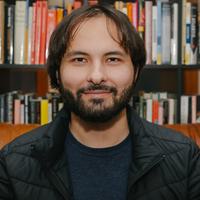Abstract
For at least the last 30 years, the U.S. economy has been reorienting away from jobs with routine workflows, which are easy to write complete contracts for, and towards jobs where the nature of the tasks involved makes monitoring performance harder. This paper introduces a measure for this notion of "non-contractability" and presents statistics related to the increase in non-contractability in the aggregate US economy over time. It then examines a pair of models which jointly capture the effects of this change on the distribution of income in both the short-run and the long-run. The resultant framework allows us to examine the distributional implications of this rise in "hard to contract for" jobs, as well as those of factor-biased technologies such as robots and AI which disproportionately threaten jobs with routine workflows.
About the speaker
Max Greenberg is a PhD student in the Economics Department at the University of Massachusetts, Amherst. Prior to his time at UMass, he received a BS in Mathematics and Economics and an MS in Systems Engineering from Cornell University. His research interests lie primarily in the economics of wealth and income inequality.
Registration
This event will be in hybrid format but will not be recorded. Please register to join this seminar online OR in person. If attending online, please note that dial in details will be included on the confirmation page.
Please contact complexity@inet.ox.ac.uk for more information.
Registration: https://app.onlinesurveys.jisc...
